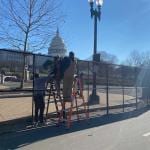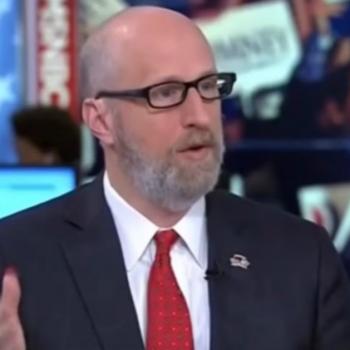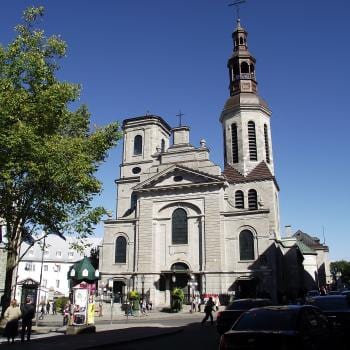Many have faulted former President Trump’s 1776 Commission for not being historical and not even including any historians among its ranks. This misses the forest for the trees. Whatever someone thinks of the Commission’s report and the way it uses the Founding to understand American history, the way historical scientists and historical amateurs tell the narrative of American history matters to creating a shared identity and sense of meaning for people living in the U.S. If you locate the origins of America in the arrival of African slaves in 1619 at Jamestown, you wind up with one way of imagining the United States’ significance. And if you look to 1776 or 1789 as the beginning of U.S. history, you also conceive of the nation a certain way. The former leads plausibly to shame and embarrassment over the United States — probably a bit of anger too. The latter may actually inspire people to identify with America and its political system.
The irony of the 1776 Commission is that the election of Donald Trump was, according to Ross Douthat, a measure of two different understandings of American history and significance. Almost four years to the date, in 2017 Douthat explained Trump’s victory in ways that foreshadowed both The 1619 Project and the President’s own commission on American history:
In seeking to reject Trump’s chauvinist vision, [liberal elites] end up excluding too much of what a unifying counternarrative would require.
The exclusion happens by omission, in the course of telling a story about America that’s powerful but incomplete. In this narrative, which has surged to the fore in response to Trump’s refugee and visa policies, we are a propositional nation bound together by ideas rather than any specific cultural traditions — a nation of immigrants drawn to Ellis Island, a nation of minorities claiming rights too long denied, a universal nation destined to welcome foreigners and defend liberty abroad.
Given this story’s premises, saying that’s not who we are is a way of saying that all more particularist understandings of Americanism, all non-universalist forms of patriotic memory, need to be transcended. Thus our national religion isn’t anything specific, but we know it’s not-Protestant and not-Judeo-Christian. Our national culture is not-Anglo-Saxon, not-European; the prototypical American is not-white, not-male, not-heterosexual. We don’t know what the American future is, but we know it’s not-the-past.
But the real American past was particularist as well as universalist. Our founders built a new order atop specifically European intellectual traditions. Our immigrants joined a settler culture, Anglo-Saxon and Protestant, that demanded assimilation to its norms. Our crisis of the house divided was a Christian civil war. Our great national drama was a westward expansion that conquered a native population rather than coexisting with it.
As late as the 1960s, liberalism as well as conservatism identified with these particularisms, and with a national narrative that honored and included them. The exhortations of civil rights activists assumed a Christian moral consensus. Liberal intellectuals linked the New Deal and the Great Society to Thomas Jefferson and Andrew Jackson. Pop-culture utopians projected “Wagon Train” into the future as “Star Trek.”
Then for a variety of reasons — a necessary reckoning with white supremacism, a new and diverse wave of immigration, the pull of a more globalist ethos, the waning of institutional religion — that mid-century story stopped making as much sense. In its place emerged a left-wing narrative that stands in judgment on the racist-misogynist-robber baron past, and a mainstream liberal narrative that has room for Lin-Manuel Miranda’s Alexander Hamilton (as opposed to the slightly more Trumpish genuine article) and Emma Lazarus, but feels unsure about the rest.
But meanwhile for a great many Americans the older narrative still feels like the real history. They still see themselves more as settlers than as immigrants, identifying with the Pilgrims and the Founders, with Lewis and Clark and Davy Crockett and Laura Ingalls Wilder. They still embrace the Iliadic mythos that grew up around the Civil War, prefer the melting pot to multiculturalism, assume a Judeo-Christian civil religion rather the “spiritual but not religious” version.
Trump’s ascent is, in part, an attempt to restore their story to pre-eminence.
You don’t need to be a crazy evangelical Christian nationalist who reads QAnon to see that American historians and regular Americans (including the likes of Abraham Lincoln and FDR) understood the US as Protestant, with ties to England, and were comfortable with white Protestants running things. You don’t even need to be a historical scientist to understand that narratives of American history read this way all the way down at least to the Bi-Centennial. Of course, other interpretations arose and the older Whig-Protestant narrative left a lot out.
But you don’t need to act like all of a sudden every single resident of the United States attended a seminar in American historiography and sees that the English Protestants who settled the original colonies were bigoted theocrats. Nor do you need to act as if somewhere in the late twentieth century, the nation held a referendum in which the majority of voters rejected the earlier account of American exceptionalism as beneath the Greatness that the United States became after Ronald Reagan left office.












